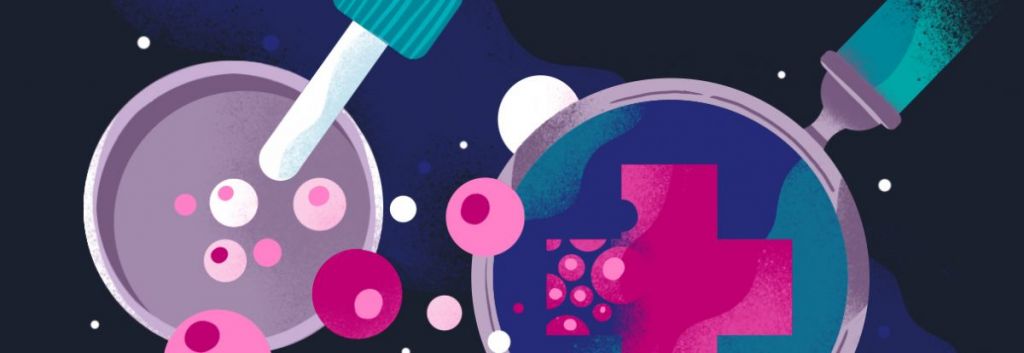A recent patent fight between the liquid biopsy companies Natera and Inivata is only the latest of many spats over DNA sequencing technology that could potentially revolutionize the detection and treatment of cancer.
Earlier this month, the UK-US biotech Inivata raised €29M in the second closing of a Series C round. The company will use the winnings to fund the development and commercialization of liquid biopsy technology that can sniff out signs of solid tumors in the blood. However, this year hasn’t been plain sailing for Inivata, which is locked in an ongoing patent dispute with the US company Natera.
The technology in the spotlight in Natera and Inivata’s fight is called cell-free DNA testing. This technology can track and identify solid tumors from tiny amounts of cancer DNA in a blood sample, which is known as circulating tumor (ct)DNA. This technology could provide an easier diagnostic alternative to invasive tissue biopsies.
In Natera’s case, the company asserts that Inivata infringes on two of its US patents with the commercialization of products in the liquid biopsy space including Inivata’s InVisionFirst-Lung cancer diagnostic test. This test was first marketed in the US for the detection of non-small cell lung cancer in mid-2020 through a partnership with the firm NeoGenomics.
In particular, Natera’s court documents claim that Inivata encroaches on its patented methods for preparing, amplifying, sequencing, and analyzing cell-free DNA to detect and monitor genes and genetic mutations commonly associated with cancers.
Natera has called for a jury trial in the US federal court for the District of Delaware, and is seeking an injunction to prevent ongoing infringement, in addition to financial compensation.
Natera did not respond to requests for comment. A spokesperson for Inivata said that “Inivata firmly believes that this allegation of patent infringement is wholly without merit and intends to vigorously defend itself against this action.”
In addition to cancer, cell-free DNA testing has the potential to revolutionize other areas of medicine such as prenatal diagnosis and transplantation medicine. This potential has also resulted in extensive litigation in the last few years between biotechs in the field as they jostle for a share in a fast-growing market. For example, Natera has clashed with CareDX and ArcherDX in separate lawsuits. Another spat is ongoing between the US firms Guardant Health and Foundation Medicine.
“There is a fair amount of litigation activity in relation to the diagnostic uses of DNA sequencing at the moment,” said Neil Jenkins, who focuses on litigating patents at international law firm Bird & Bird. “In addition, of course, the current topic of media interest is the sequencing of Covid-19 mutations.”
One of the most recent judgments in the UK was in a fight between the sequencing firms Illumina and MGI, a subsidiary of the Shenzhen-based BGI Group. Last month, the High Court of England and Wales found four out of five Illumina patents valid, and its decision followed a previous preliminary injunction that restricted the supply of the infringing sequencing systems from MGI.
“Illumina has basically put paid to MGI entry onto the UK market with a couple of their systems,” Jenkins noted.
Neither Illumina nor MGI were available to comment. In public statements, however, both make it clear that their battle is set to continue in the UK and in other countries across the globe.
Before August last year, only two liquid biopsy tests had been approved by the FDA. But, in this rapidly expanding field, there is much to play for as new technologies gain approval and companies bulk up to muscle in on the action.
Last August, the FDA approved Guardant Health’s Guardant 360 CDx assay and Foundation Medicine’s FoundationOne Liquid CDx, which use next-generation sequencing to profile any solid tumor. Unlike the two tests available before this approval, which detect single genes, these latest products can target many genes in patients with advanced cancer.
Shortly after, in October, US biotech Exact Sciences Corp acquired Thrive Earlier Detection Corp in a deal involving a cash and stock consideration of up to €1.7 billion. That same month, Invitae bought genomics analysis company ArcherDX to create a comprehensive testing service for disease risk, therapy optimization and personalized cancer monitoring.
Grail, which was acquired by Illumina last year in a €6.6B deal, announced in January that it would collaborate with big pharma companies Amgen, AstraZeneca, and Bristol Myers Squibb on technology to detect minimal residual disease in early-stage cancer patients.
There remain some concerns over how accurately cell-free DNA testing can determine the type of cancer a person has and where it is located in the body, with concerns over its sensitivity and false positive tests.
Nonetheless, the billion-euro deals demonstrate confidence within the biotech community and it seems more than likely that cell-free DNA testing may one day become part of routine care. And with the arrival of new players on the scene such as the UK epigenetics specialist Base Genomics last year, liquid biopsy innovations are likely to follow.
This article was updated on 26/02/2021 to correct the headquarters of BGI Group to Shenzhen, China.
Cover image from Elena Resko





